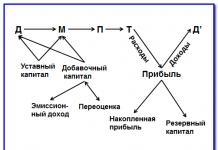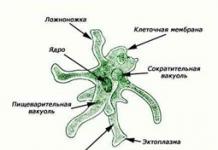The conditional mood in French is used in the present and past tense and indicates a desired, possible or expected action that may occur under certain conditions.
Conditionnel present
To form the desired form of a French verb in the conditional mood in the present tense, you need to add the ending of the form imparfait to the initial form of the verb.
Even French verbs of the third group mostly form forms of the conditional mood according to the rules.
The exception is verbs ending in –re (the final e is lost).
Conditional mood in the past tense (Conditionnel passé)
The conditional mood in the past tense is used to express an action that could have happened in the past under certain conditions, but did not happen.
The conditional mood in the past tense is formed in two ways: the first form Conditionnel passé is widely used in modern French and is formed using auxiliary verbs (avoir / être) in the form Conditionnel présent plus the main verb in participe passé; the second form is used in book speech and is formed using the same auxiliary verbs, but in the form subjonctif imparfait plus the main verb in the form Conditionnel présent.
Formation of conditional forms in French verbs of the first group
|
present |
passé (première form) |
passé (deuxième form) |
|
je parl erais
|
j" aurais parl é
|
j" eusse parl é
|
Formation of conditional forms in French verbs of the second group
|
present |
passé (première form) |
passé (deuxième form) |
|
je finirais |
j" auraisfini |
j" eussefini |
An example of the formation of conditional forms in French verbs of the third group
|
present |
passé (première form) |
passé (deuxième form) |
|
je prendrais |
j" auraispris |
j" eussepris |
The verbs avoir/être are irregular and their conjugation must be remembered.
Imperative mood
The imperative mood in French is used to express an order or prohibition. There are only three forms of the imperative mood:
2nd person units numbers (tu)
1st person plural numbers (nous)
2nd person plural Numbers (vous)
Forms of the imperative mood in the past tense are formed using verbsavoir/être in the form imperatif present plus the main verb in the form participe passé.
Formation of imperative forms in French verbs of the first group
|
present |
passé (première form) |
|
parle |
aie parlé |
Formation of imperative forms in French verbs of the second group
|
present |
passé |
|
finis |
aiefini |
An example of the formation of imperative forms in French verbs of the third group
|
present |
passé |
|
prends |
aiepris |
Subjunctive mood (Subjonctif)
The subjunctive mood (Subjonctif) is used both in written and spoken French. A verb in the subjunctive mood expresses the speaker’s personal opinion of what was said. The subjunctive mood is used in four tenses: présent, passé, imparfait, plus-que-parfait. However, the most common are the first two forms. The latter are rare in modern French. Usually the subjunctive form is used in subordinate clauses.
Subjunctive mood in the present tense (Subjonctif présent)
The subjunctive form of a French verb in the present tense is formed by the particle que before the subject and the verb stem in the third person plural present tense with the corresponding endings.
Subjunctive mood in the past tense (Subjonctif passé)
The subjunctive mood of French verbs in the past tense is used to denote an action that occurred before the conversation.
The subjunctive form of a French verb in the past tense is formed by placing the particle que before the subject and by using the auxiliary verbs avoir/être in the present subjonctif form, which are placed before the main verb in the form Participe passé.
Subjunctive mood in the past incomplete tense (Subjonctif imparfait)
The subjunctive mood of the past imperfect tense (Subjonctif imparfait) expresses succession or simultaneity regarding a moment in the past.
The form Subjonctif imparfait is formed from the main verb in the passé simple in the 2nd person singular. numbers plus the appropriate ending.
Subjunctive mood in the prepast tense (Subjonctif plus-que-parfait)
The subjunctive form of the pre-past tense (Subjonctif plus-que-parfait) is used in a subordinate clause when the verb in the main clause is used in the past tense, and the action of the subordinate clause occurred before the action of the main clause. The form Subjonctif plus-que-parfait is formed using the auxiliary verbs avoir/être in the form subjonctif imparfait and the main verb in participe passé.
Formation of subjunctive forms in French verbs of the first group
|
present |
passé |
imparfait |
plus-que-parfait |
|
que je parl e
|
que j "aie
parl é
|
que je parl asse
|
que j" eusse
parl é
|
Formation of subjunctive forms in French verbs of the second group
|
present |
passé |
imparfait |
plus-que-parfait |
||||
|
que je finisse |
que j 'aie
fini |
que je finisse |
que j' eusse
fini |
||||
An example of the formation of subjunctive forms in French verbs of the third group
|
present |
passé |
imparfait |
plus-que-parfait |
|||
|
que je prenne |
que j 'aie
pris |
que je prisse |
que j' eusse
pris |
|||
Any foreign language has different verb forms, just like French. The most complex and extensive parts of speech to study in foreign languages are verbs. They have many forms, declensions, and conjugations. When learning verbs, your concentration and willingness to study in depth is important, but the imperative mood used in French is extremely simple.
What is the imperative mood l'impératif?
Considering moods, I would like to remind you what this term means. Mood is the grammatical form of a verb that indicates the modality of the verb. That is, this is a certain characteristic that gives an idea of the reality of the narrative or indicates the attitude of the speaker to the listening person. This mood involves inducing someone to take a specific action or request, as well as to make a wish or order. The imperative mood comes in three forms:
- Firstly, this is the 2nd l. units numbers,
- Secondly, this is the 2nd l. pl. numbers,
- Thirdly, 1st l. pl. numbers.
Remember the most important rule: In the imperative mood, the subject expressed by a pronoun is never used!
It should be noted that the forms of the imperative mood of French verbs completely coincide with their forms of the present tense, which are presented in the indicative mood. But there is one feature that must be taken into account when using verbs in the imperative mood. This is a verb group.
You probably know that all French verbs are divided into the first, second and third groups. So, depending on which verb group the verb belongs to, the rules for forming the imperative mood may change.
Formation of the imperative mood – Formation de l’impératif
Let's look at the verb of group 1 – chercher (search): Cherche! (search!), Cherchons! (let's search!), Cherchez! (look for it!).
Verb 2 groups - obéir (obey), example: Obéis! (obey!), Obéissons! (let's obey!), Obéissez! (obey!).
Group 3 verb – boire (to drink), example: Bois! (drink!), Buvons! (let's drink, let's drink!), Buvez! (drink!).
Let us recall the exception using the example of verbs of group 3 offrir (offer) - Offre! (offer!), aller (go) - Va! (Go!) and other verbs of the 3rd group ending in -frir, -vrir. The final “s” in such verbs disappears in the imperative mood!
There are also other exceptions to the presented rules that need to be learned:
Verb 3 groups avoir (to have): aie! ayons! ayez!
Group 3 verb être (to be): sois! soyons! soyez!
Group 3 verb savoir (to know): sache! sachons! sachez!
Formation of the imperative mood of reflexive verbs
Let's remind ourselves what reflexive verbs are. These are verbs whose action is directed towards oneself; in Russian they end in – sya, and in French they begin in se-. For example: Wake up, Rise – SE lever.
When forming the imperative mood of such verbs in French, you need to be especially careful:
If we are talking about the affirmative form, then SE is a reflexive particle of the French language, which is placed after the verb and in the person in which the verb is used.
For example: Promenons-nous! Or Asseyez-vous!
And for 2 l. units h. the stressed form of the pronoun Calme-toi is used! In the first case, the stressed form must also be used, but the pronouns “nous” and “vous” remain in the same form, since their stressed and unstressed forms are the same.
Remember that in writing you must put a hyphen between the verb and the reflexive particle!
If we are talking about negation, then the reflexive particle is placed before the verb, after the negative particle “ne”. It is used in its unstressed form.
For example: Ne te plains pas! Or: Ne nous doutons pas! Or: Ne vous hatez pas!
Simple and complex imperative mood
We have already met simple forms of the imperative mood earlier, so we will talk in more detail about the complex form. Yes, the French imperative can be both simple and complex, a clear analogy of which is the system of verb tenses.
The complex form of the imperative mood is not used as often as the simple one. It is formed by adding to the simple imperative form of the verb of group 3 “avoir” or “etre” a simple participle, taken in the form of the past tense (participe passé) of the conjugated verb. Which auxiliary verb will be used depends on the rules for forming the passé composé tense.
If you remember, there are a number of verbs that are conjugated with different auxiliaries.
For example: Aie parlé! (you), Ayez cherche! (you), Sois venu(e)! (you), Soyez parti(e,s,es)! (You).
The complex form of the imperative mood of the French language is used to denote an action that is completed before a certain moment in the future.
For example: Ayez rédigé (eye redige) votre rapport (votre rapor) avant neuf heures (avant neveur) et vous serez recompensé (e vou sere rocompense). Finish your report before 9 o'clock and you will be rewarded.
And also this complexity of inclination was invented to give the action a certain “completeness”
For example: Ayez fini ce rapport à cinq heures (Eye fini se rapor a sankur). Finish your report before 5 o'clock.
The tricky thing about learning moods is that their forms may require information about verb tenses that you have learned previously. If you have studied everything carefully and your memory is fresh, then there will never be any difficulties! Good luck with your studies!
Mood is a grammatical form of a verb that shows the speaker’s attitude towards an action. The moods in French are as follows:
- indicative (indicatif),
- imperative (impératif),
- conditional
- subjunctive (subjunctif).
In French, each mood has several tense forms. The tense in which the verb is located determines the moment of speech to which the action refers.
Indicative
The speaker is aware of the action as real, definite, which occurs in the present, past or future time. The indicative mood has the greatest use in language.
In French, the main forms of the indicative mood are:
- present to express the present tense
- passé composé, imparfait, plus-que-parfait, passé simple to express the past tense
- futur simple, futur antérieur to express the future tense
Imperative mood
An inducement to a certain action, a request, a wish or an order. It exists in three forms: second person singular and plural, first person plural. In the imperative mood, the subject pronoun is not used.
Fais! - Do it! Choisis! - Choose!
Faites! - Do it! Choisissez! - Choose!
Faisons! - Let's do! Choisissons! - Let's choose!
Regarde! - Look! Regardez! - Look!
Regardons! - Let's see! (Let's get a look!)
Reflexive verbs:
Lève-toi! - Get up! Levez-vous! - Get up! Levons-nous! - Let's get up!
Conditional mood
Indicates an action that may be possible, contemplated, or desired. This mood denotes an action, the possibility of which depends on specific and specific conditions.
The conditional mood has two tenses: le Conditionnel présent and le Conditionnel passé. Both tenses are translated by one form of the conditional mood.
Le Conditionnel présent coincides in form with le Futur dans le passé.
Il pourrait etre là. - He's probably there.
Il voudrait lire ce roman. — He would like to read this novel.
Si j'étais fort, je t'aidais. - If I were strong, I would help you.
Le Conditionnel passé is formed with the help of the auxiliary verbs avoir or être, which are found in le Conditionnel présent and le Participe passé of the conjugated verb.
Si tu étais venu au stade, tu aurais assisté à un match splendide. — If you came to the stadium, you would be present at a great match.
Si j'avais eu ton numéro, je t'aurais téléphoné le soir. - If I had your number, I would call you in the evening.
Subjunctive mood
Shows that the speaker views the action not as a real fact, but as expected or desired. It is usually used after impersonal phrases and verbs expressing will, command, prohibition (vouloir, prier, il faut, il semble), as well as in subordinate clauses after some conjunctions and allied words.
Il faut que j'aille à la poste. - I need to go to the post office.
Je veux que vous écoutiez l'instructeur. - I want you to listen to the instructor.
Le Subjonctif présent is formed by adding to the stem of the third person plural of the indicative mood (Indicatif) the endings: -е, -es, -е, -ions, -iez, -ent.
Exceptions to this rule are the verbs avoir, être and some others: parler, finir, mettre.
Il n'y a personne qui puisse l'aider. - Nobody can help him.
Je serais bien content qu’il soit là. “I would be very pleased if he were there.”
Je ne suis pas sûr qu’il fasse beau demain. — I'm not sure that the weather will be good tomorrow.
Il me demande que je revienne le lendemain. — He asks me to come back the next day.
Que personne ne sorte! - So that no one comes out! (let no one leave!)
If you liked it, share it with your friends:Join us onFacebook!
See also:
We suggest taking tests online:
Use
Used to express a request, wish, order, advice, etc. It has only three forms: 2 l.un.h. (appeal to “you”), 1 l. plural (“we”), 2 l. plural ("You"). Used without a subject.
Education
- Verbs with indefinite endings in -ir And -re have the same forms as in the corresponding forms of the present tense:
attend
tu attends → attends! — you are waiting - wait!
nous attendons → attendons! — we are waiting - we will wait!
vous attendez → attendez! — you are waiting - wait!
- Verbs with indefinite endings in -er and 3 groups on -vrir / -frir(like ouvrir, offrir) have no ending -s in 2 l.un.h. ("You"); in the remaining two forms the endings are the same as in the present tense:
tu vas → va! you go - go!
nous allons → allons! we're going - let's go!
vous allez → allez! you go - go!
Negative form of the imperative mood
The negative form of the imperative mood is formed according to the general scheme:
ne + verb + pas(or another).
Ne ferme pas la porte! — Don't close the door!
Ne vous inquietez pas! — Do not worry!
Verbs with special forms
4 verbs have special forms in the imperative mood:
avoir: aie; ayons; ayez
être: sois; soyons; soyez
savoir: sachet; sachons; sachez
vouloir: veuille ("tu"); veuillez (“vous”). The imperative form of the verb vouloir is used to form a polite request:
Veuillez vous asseoir! — Sit down please!
Imperative mood of pronominal verbs
Impératif passé (imperative mood of the past tense)
In French there is a form


























